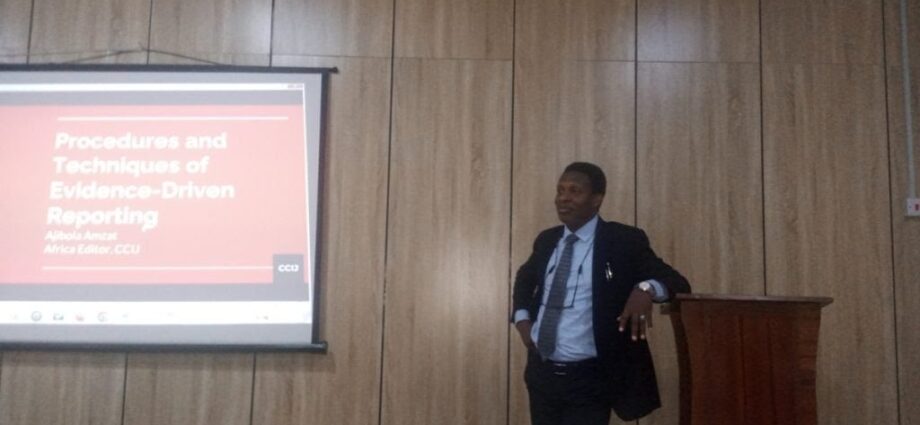Ajibola Amzat, an Africa Editor at the Center for Collaborative Investigative Journalism (CCIJ), recently addressed the challenges facing journalism in Nigeria and its divergence from global standards.
During a two-day training on investigative journalism, Amzat expressed concern over the departure from traditional practices of verifying evidence to support journalistic reports. He highlighted the prevalent trend among Nigerian journalists of simply regurgitating information without ensuring its accuracy.
Amzat, who presented a paper on the importance of evidence-driven reporting, emphasized the critical role of evidence in maintaining media relevance. He criticized the current state of journalism in Nigeria, referring to it as “churnalism” rather than true journalism. He warned that such practices are detrimental, as journalism is vital for the development of Nigeria’s democracy.
“Most journalism practice today is public relations. They just give information and it is packaged to Nigerians without verification. All the things we package as news have not been fact-checked.
“Journalists hold a powerful tool to correct wrong data that has been put out to the public. Always question authorities’ methodology to know if the data they are releasing contains a falsehood. Journalists must have a questioning mind. Question everything. Doubt everything given until someone provide the truth. Never stop querying your data,” he stated.
He emphasized that journalists possess a powerful tool to rectify erroneous data that has been presented to the public. He encouraged them to scrutinize the methods used by authorities to ascertain the validity of the information being released. Amzat stressed the importance of cultivating a questioning mindset, urging journalists to doubt everything until the truth is revealed.
To address the prevailing trend of journalists reporting information without substantive evidence, Amzat proposed that practitioners engage in consistent research, conduct interviews, make observations, obtain verifiable documents, conduct surveys, and report findings without bias. These practices, he suggested, would contribute to the restoration of integrity in Nigerian journalism.
2023-07-11

